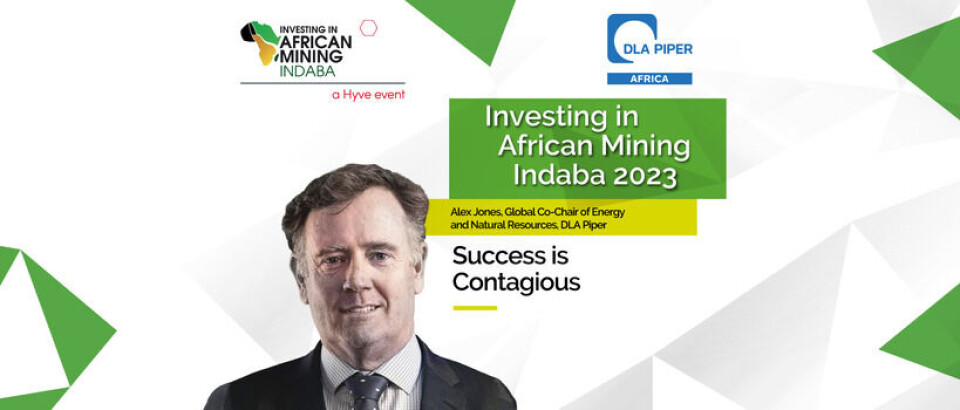The path to a bigger, better future for African mining may, counterintuitively, involve focusing more on smaller projects and stacking up many successes rather than trying to maximise every project or discovery from the outset, says international mining expert Alex Jones.
“We need to focus on getting more modest mining projects operating, we need to see more companies making money,” commented Jones, Global Co-Chair of DLA Piper’s Energy and Natural Resources sector. “Everyone needs to be willing to bite off smaller pieces initially in order to create the success stories that will ultimately lay the foundation for more significant projects in the future. Success is contagious.”
Talking to Africa Legal ahead of Mining Indaba 2023, held in Cape Town from 6-9 February, Jones said he believes “all the pieces of the puzzle are already there” – including enough people with the right intentions and capabilities – to help unlock the future of African mining.
“To use a sporting analogy, we need a little bit of patience, we need to lower our gaze, and we need to be willing to play a longer game to get some runs on the board.”
Jones gave the example of a mining company planning a 30 million tonne operation, only to decide just before going ahead, to expand to 50 million tonnes. Or to add a processing plant. Similarly, governments have sometimes focused too much on maximising direct revenue from projects (eg royalties) or insisted on being involved in downstream processing (where the greatest risk lies), rather than being focused on growing indirect revenue and benefits by establishing the industry locally and putting in place the necessary surrounding legal and regulatory frameworks.
Creating a fertile investment environment will bring far greater long-term success, he says.
“We need to work together as an industry to get more lower-risk projects operating successfully. The money will follow,” Jones emphasised. “One of the big issues in a lot of African jurisdictions is that you can’t point to enough projects that have gone smoothly and made money. So I’d adjust my expectations and spend more time planning. If there have been two or three projects developed successfully in an emerging jurisdiction, and they’ve gone relatively smoothly, then the financial backing for the next, bigger project will come.”
One “extraordinary untapped opportunity” for African mining, said Jones, may be the use of split commodity agreements. These have become more common in Western Australia, one of the world’s top mining regions. The exploration and mining rights for a shared area are contractually carved up between different mining companies, eg gold, lithium and rare earths.
Overall, both states and mining companies in Africa need to ensure they don’t let perfect be the enemy of good, noted Jones. He advises having some "practice runs" with smaller projects, and not immediately aiming for the biggest projects or using the best resources and prospects.
“As an industry, we’ll learn how to administer or regulate African mining projects better, we’ll build a greater understanding of and appreciation for market nuances, and the success stories that will change things in the future in terms of capital flow will follow,” Jones said. “Sometimes companies try to go hard at their first significant opportunity, or new regimes want a flagship mining project and set the bar too high. Those repeated failures can make the next project even harder.”
To join Africa Legal's mailing list please click here

